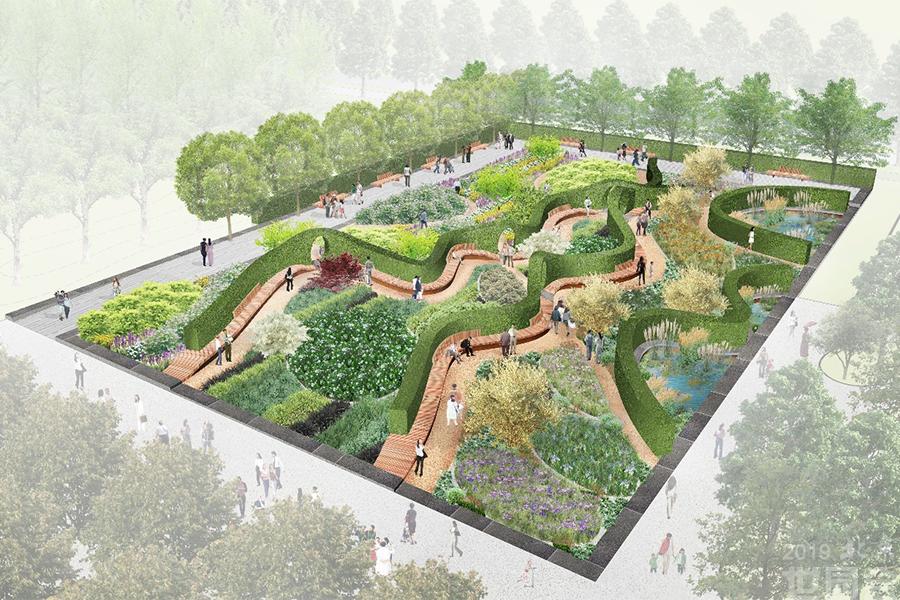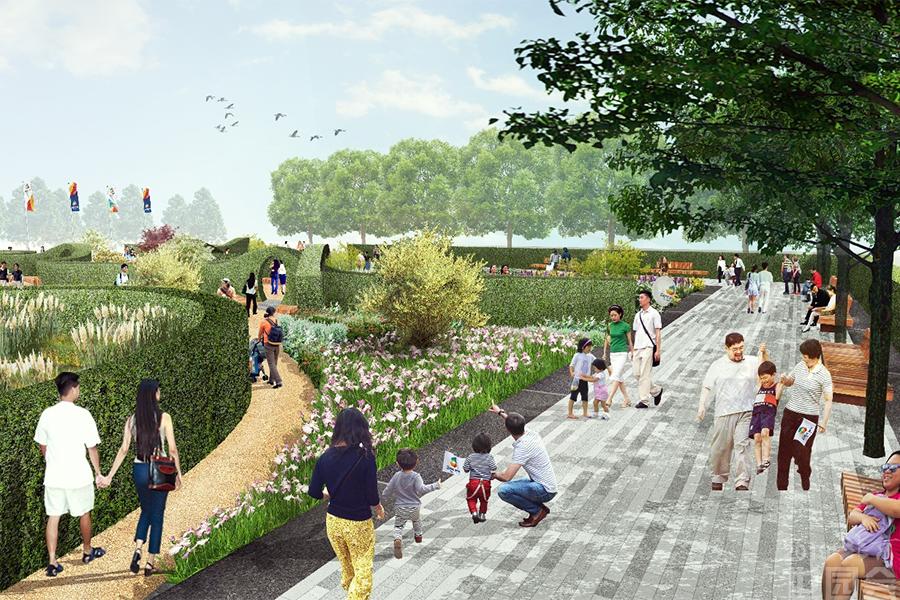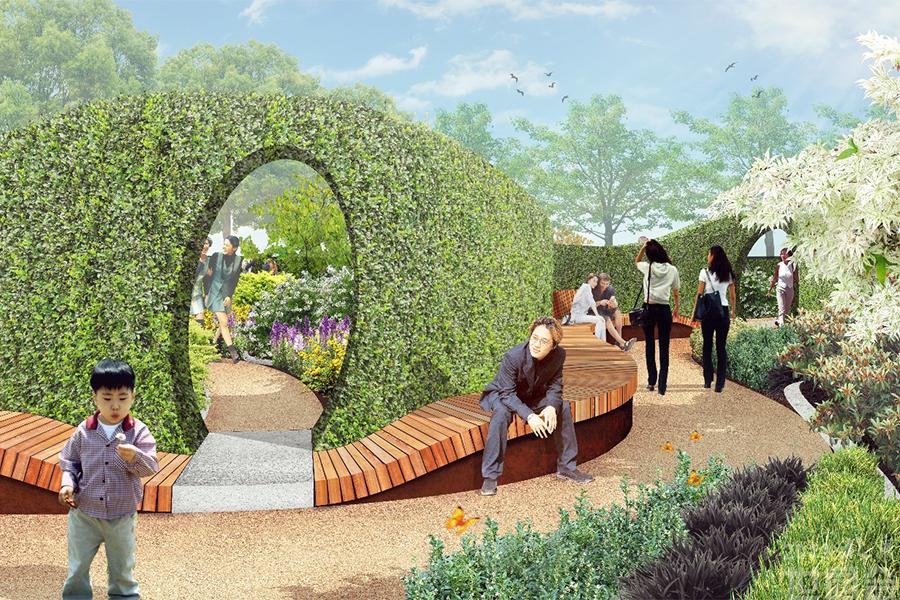

Main Venue Twelve Sights International Gardens Domestic Gardens Corporate Garden Masters’ Garden Specialized Gardens
Activity ServicesRecommended Itineraries Rental Information Retail Outlets Volunteer Service Transport Information
Online Expo Hi-tech Expo5G Sapiential Expo Robotics Internet of Things
Ticket Media CenterEast and West Park: Harmonious and Diverse “East and West”
China and the United States are two countries at the two ends of the Earth, but are almost at the same latitude and have a similar climate, making it possible for Chinese plants to propagate in the United States. In the Beijing Expo 2019, American designer George Hargreaves and his team bring “East and West Park”. Through the analysis of the global space environment of China and the United States, they explore how Chinese native plants influence public space design in the United States and even around the world as a whole, and try to find the “harmony in diversity” between the Oriental and Western gardening spaces.

In the exhibition garden, the global plant cold-tolerant zone is divided into four distinct zones, each of which is separated by periodically opening green hedges. Each zone represents a typical plant type. Visitors can explore each area for visual comparison along a woven net structure. The terraced fields of the four zones allow the rainwater in the exhibition park to flow to the lowest fourth zone, forming wetland landscape.

Apart from the shared plants of the two countries, there will also be a comparison of the different species of plants in the same family in the two countries. The planting in the form of strips, clouds, and dots forms a complete whole. The low-lying ground cover plants in the form of geometric determinant are used as the bottom structure; the slightly elevated areas seem like the clouds floating above the strips, where shrubs and flowers are planted; the small circular space serves as a prominent point for isolated planting of trees.

The wide roads around the exhibition park and the winding network paths inside the areas form two levels for viewing and experiencing the garden. The main road provides a vibrant space along the perimeter, and visitors within the public space can observe different garden environments from the perspective of “outsiders”. Visitors walking around the perimeter can observe the depth of field of different gardens as the paths shift and open. At the same time, paths and hedges create smaller immersive spaces. The height of the hedges is just at eye level. When the visitors enter the net-shaped paths in the area, they become part of the garden, observing the garden at close quarters and also becoming the object of observation for others.


The boundaries of the curves create a small concealed space that allows people to think inside, while also allowing each visitor to show their individual needs, arouse their curiosity and prompt people to continue through the garden. The long linear seats along the hedges enhance this boundary while providing visitors with rest facilities.
Strolling in this garden, visitors can simply enjoy the beauty and fragrance of flowers and experience the sensory stimulation, as well as let their imaginations soar and interpret the long migration journey of plants from the east to the west. They can also use rational thinking to explore differences in plant varieties in different climate.

 Explore new horizons, establish new models. 2019 Beijing Expo is about to closing
Explore new horizons, establish new models. 2019 Beijing Expo is about to closing 7.8 mln tourists visit Beijing horticultural expo
7.8 mln tourists visit Beijing horticultural expo "Macao Day" event held at Beijing horticultural expo
"Macao Day" event held at Beijing horticultural expo Zambia National Day event held at Beijing horticultural expo
Zambia National Day event held at Beijing horticultural expo Forum themed "A Promising Material" held at Beijing horticultural expo
Forum themed "A Promising Material" held at Beijing horticultural expo "Hong Kong Day" event held at Beijing horticultural expo
"Hong Kong Day" event held at Beijing horticultural expo Beijing horticultural expo holds "Ghana Day" event
Beijing horticultural expo holds "Ghana Day" event "Guinea Day" event held at Beijing Int'l Horticultural Exhibition
"Guinea Day" event held at Beijing Int'l Horticultural Exhibition "Britain Day" event held at Beijing horticultural expo
"Britain Day" event held at Beijing horticultural expo "Papua New Guinea Day" event held at Beijing Int'l Horticultural Exhibition
"Papua New Guinea Day" event held at Beijing Int'l Horticultural Exhibition